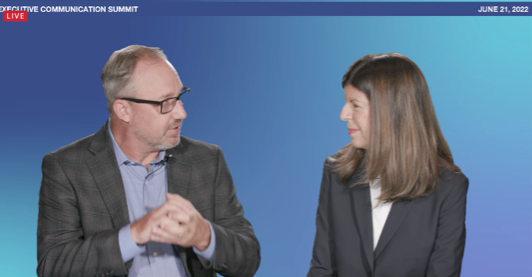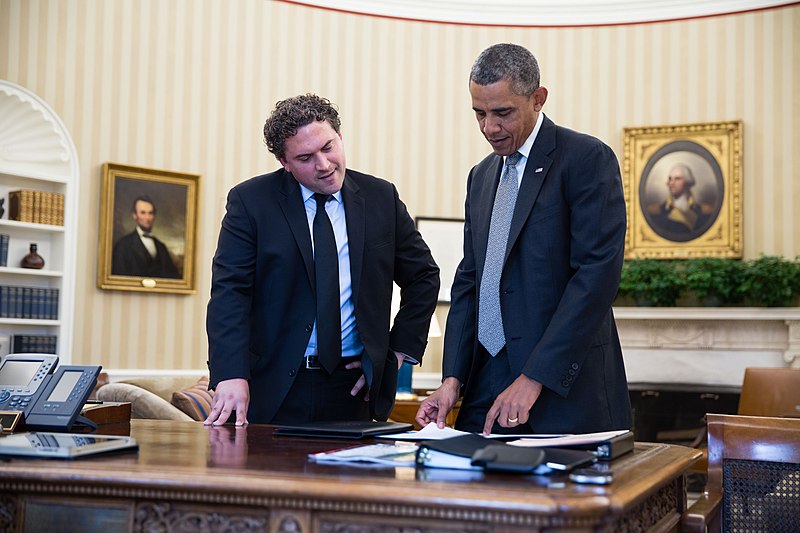The Upside of a Tribe
October 29, 2024
As the world trembled on the edge of the U.S. election, the global speechwriting community gathered in Washington for intellectual sustenance and social solace. And they found it.
Last week professional speechwriters for government officials, university presidents, corporate CEOs and nonprofit heads from around the world flocked together to find the intellectual means, the moral strength and the sheer courage to do their increasingly difficult job: using professional rhetoric, to quote the conference convener’s mission, “to promote greater social understanding.”
That conference convener was me.
My opening remarks at the World Conference of the Professional Speechwriters Association last Tuesday morning at Georgetown University came exactly a fortnight before a U.S. presidential election whose rhetorical circumstances seem to mock rhetoric, as a civic art. Or as a civilized one, anyway.
I told the assembled scribes that it seemed a low point in rhetoric. Continuous calls for peace are drowned out by more war, calls for climate change are blown away by monster hurricanes. Disinformation is the new pandemic. And leaders who only a few years ago were speaking out on George Floyd and January 6 are hiding under their desks, refusing to issue a mumbling word on Donald Trump and Robby Starbuck: University leaders are claiming “institutional neutrality” and corporate leaders are saying things like, “Less is more, in ’24.”
“And the publics these leaders are trying to speak to?” I said. “They’ve never seemed less receptive to fair-minded rhetorical persuasion … less sure of their ability to discern truth from lies … and less faithful of their own ability to make themselves meaningfully heard. ‘Use your words,’ patient parents tell their children. ‘We’ve tried that,’ the children are saying, as they threaten to lash out with their fists.’ Where, exactly two weeks before the U.S. election and with many other elections looming, does that leave the professional speechwriters of the world? Well, it leaves you right here, with one another, to talk through, to think through—to drink through—where global rhetoric needs to go now.”
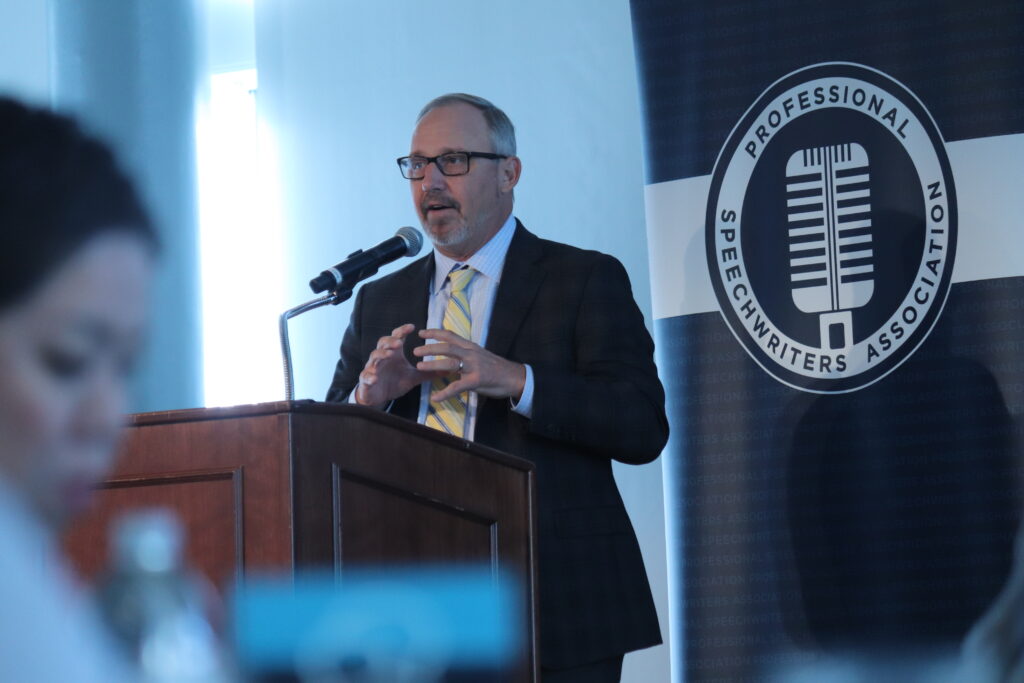
But you know what? As I spoke those discouraging words, I realized their tone didn’t match the mood in the room, which was one of celebration and relief. Yes, we’d come together to discuss difficult issues in a difficult moment. But the operative word was not “difficult,” it was “together.”
Luckily everyone got over my bummer opening quick. And what followed was two days of conversation and hugs, intellect-searching philosophical talk, belly laughs and real tears. Conferences are notoriously hard to reproduce in writing, this conference maybe harder than most. So we’ll lean hard on the pictures taken by Lauren Mueller, speechwriter to U.S. Senator Kirsten Gillibrand—and the volunteer conference photographer.
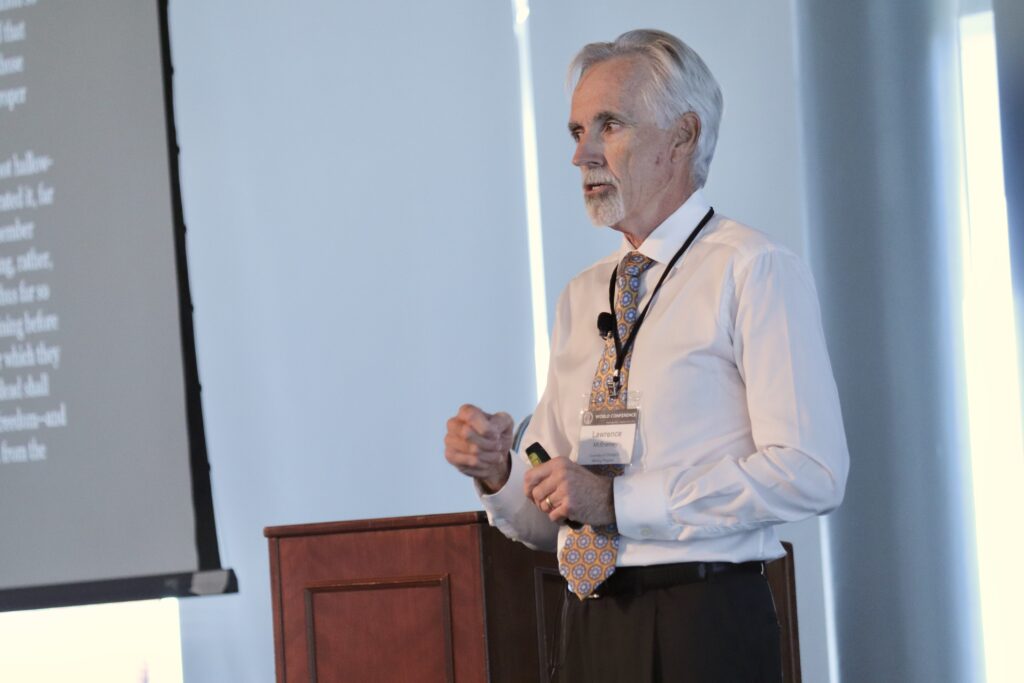
The intellectual peak of the conference was a the closing talk on the Gettysburg Address, by the legendary longtime head of the Writing Program at the University of Chicago, Larry McEnerney. By taking the speech off the marble wall and reducing it to the nettlesome speechwriting assignment it originally was, McEnerney made the speechwriters see the power of their pens, not just to make beautiful documents but to make people die for a cause, however just. (In McEnerney’s well-demonstrated view, the Gettysburg Address is an ethically monstrous but devastatingly powerful graveside pep talk to grieving parents by a “great and terrible” rhetorical genius.)
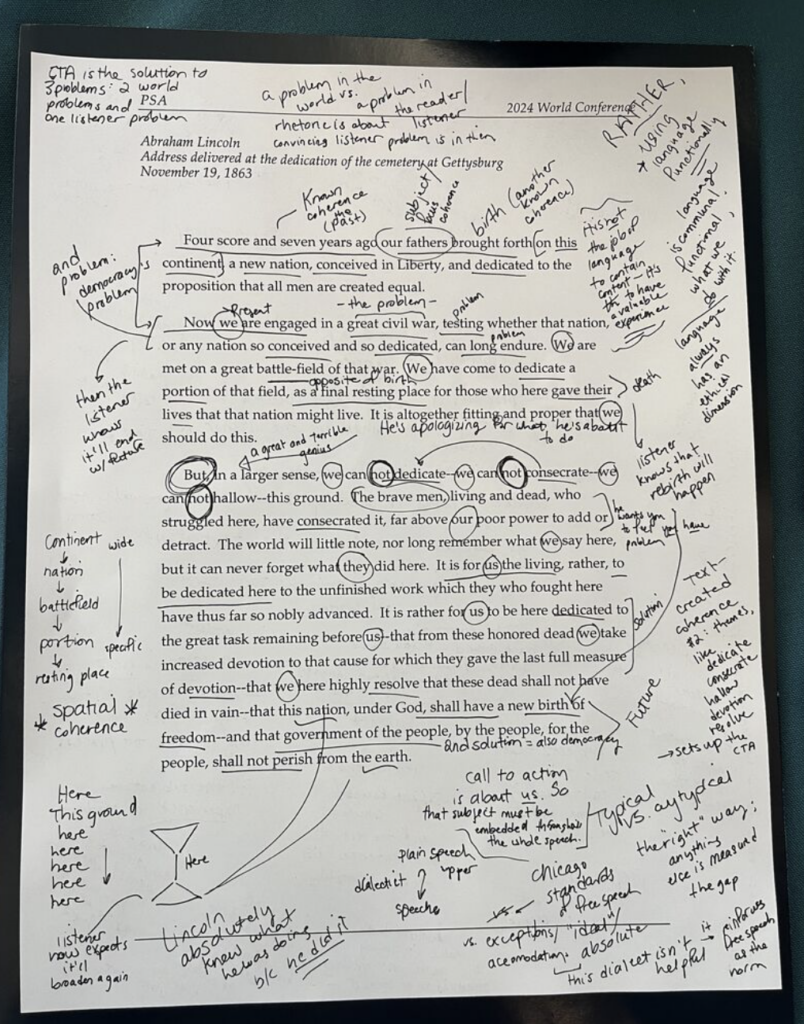
(Everyone in the audience was encouraged to mark up Lincoln’s text. This was the work of Harvard Medical School speechwriter Allison Eck.)
We will soon make a video of McEnerney’s talk available publicly, for the enjoyment and edification of all. But neither that video nor any of the others at the conference can capture the feeling of these days, that Mueller’s pictures try so gallantly to convey:
Like an award-winning speechwriter giving a speech of her own for once, on the need for honest rhetoric, even when it’s unpleasant. “If You Want Peace, Prepare for War,” was the title of the speech for which NATO Military speechwriter Eleonora Russell won the Grand Award in the 2024 Cicero Speechwriting Awards. And it might have been the title of her acceptance speech here, too.
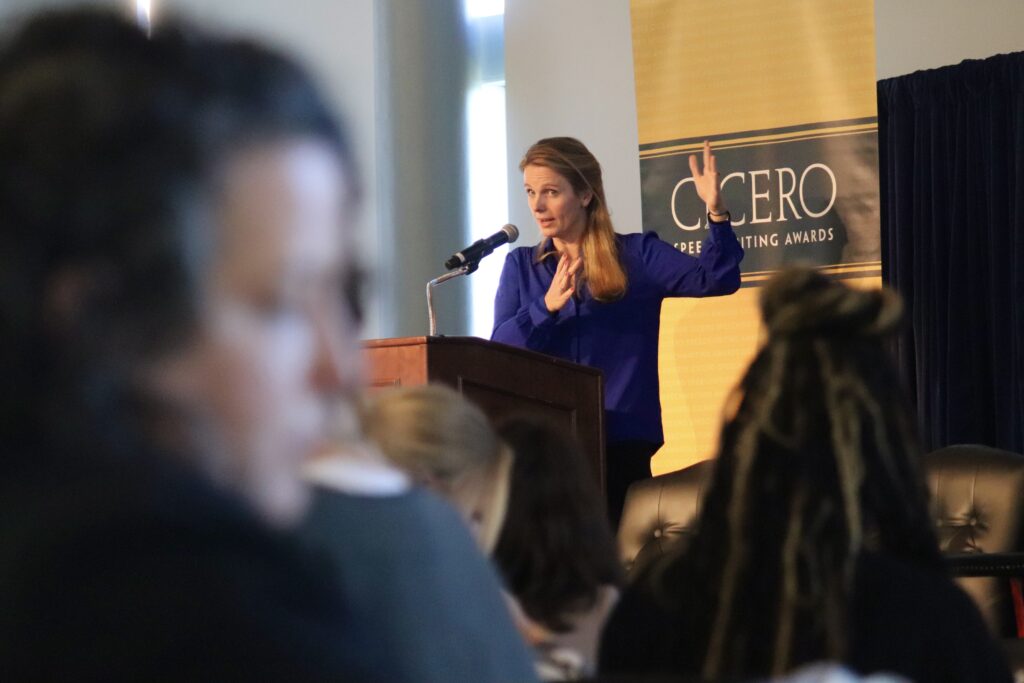
In another session, a wise and supremely confident communication leader told her colleagues, many of them younger and less experienced, how she talks to her boss, how she respectfully disagrees, how she makes their relationship an true partnership despite their on-paper power difference.
This is what Wesleyan University Chief Communication Officer Renell Wynn looked like while she was talking …

… and this is what the audience looked like while they were listening.

While Mueller captured some nice images of speakers, like former President Obama Speechwriter Terry Szuplat, author of the new speechmaking/writing Say It Well …

… some of the most profound talks at the conference were short first-person testimonies of professional courage by speechwriters Felicity Barber, Mame Kwayie, Lech Mintow-Czyz …


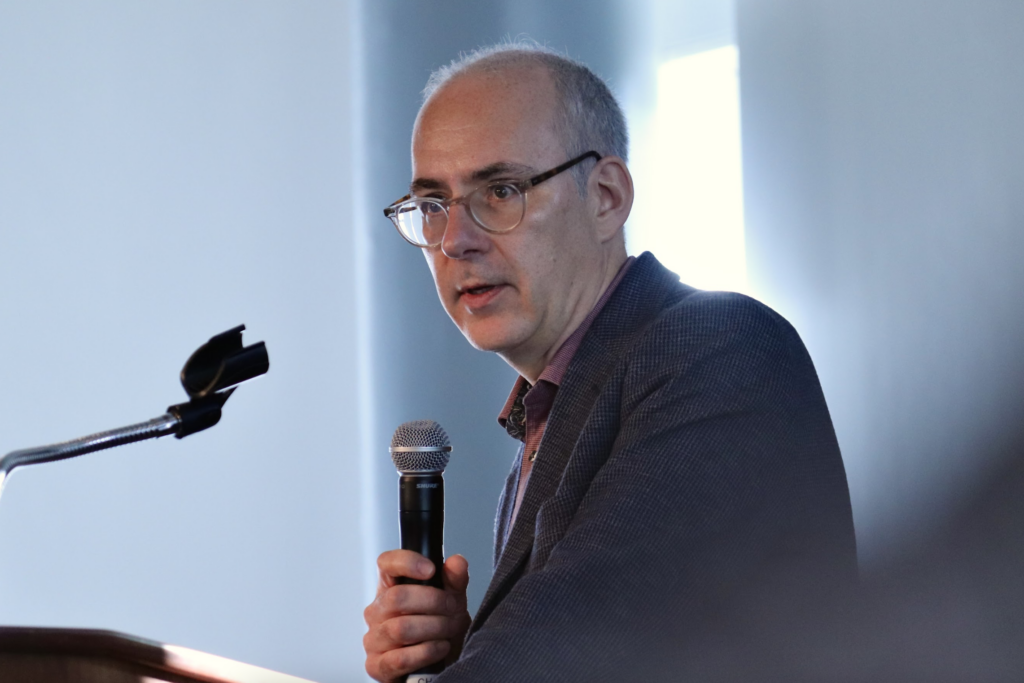
… and a groundbreaking talk by University of Rochester’s Amy Arbogast on how speechwriters can more effectively and humanely help neurodivergent speakers—and even their neurodivergent selves.

But it’s really the photos of the participants that take me happily back to last week (and continue to distract me from next).
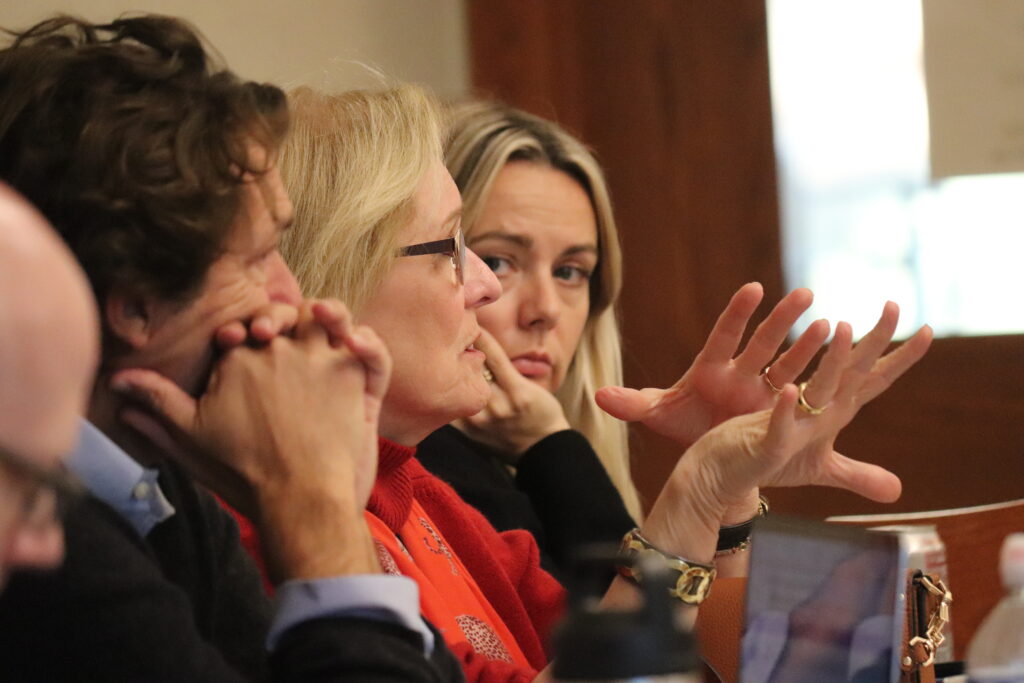


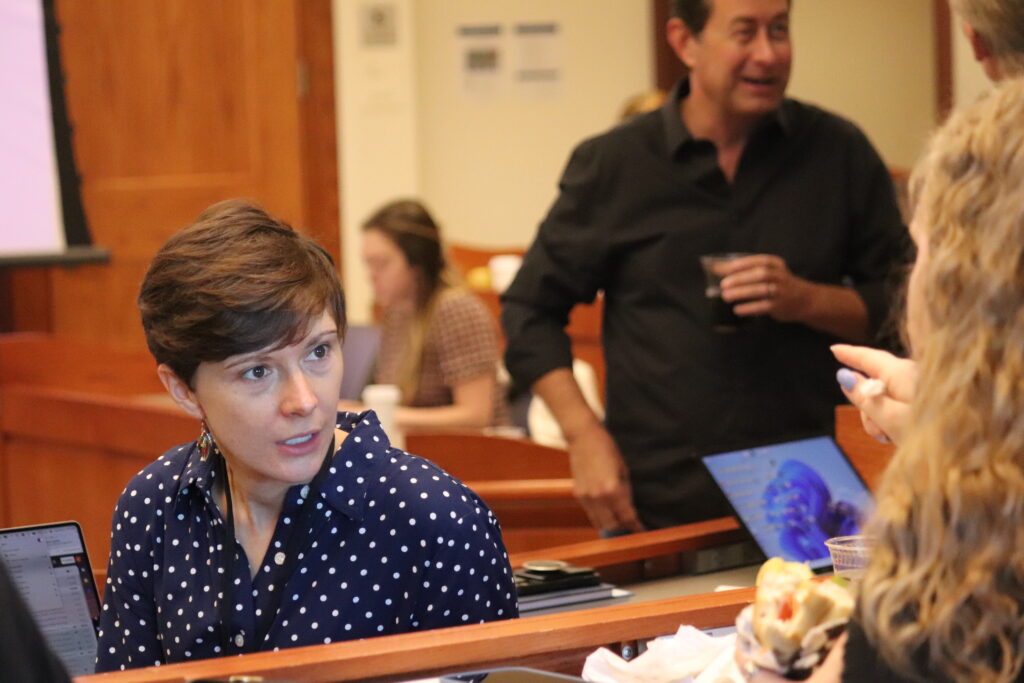
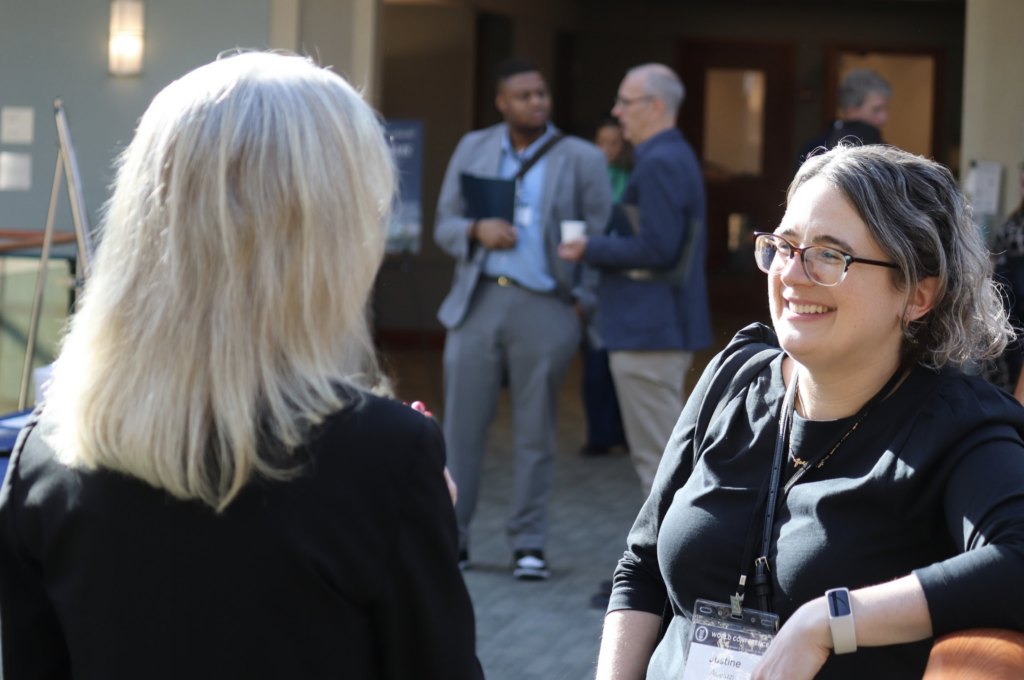
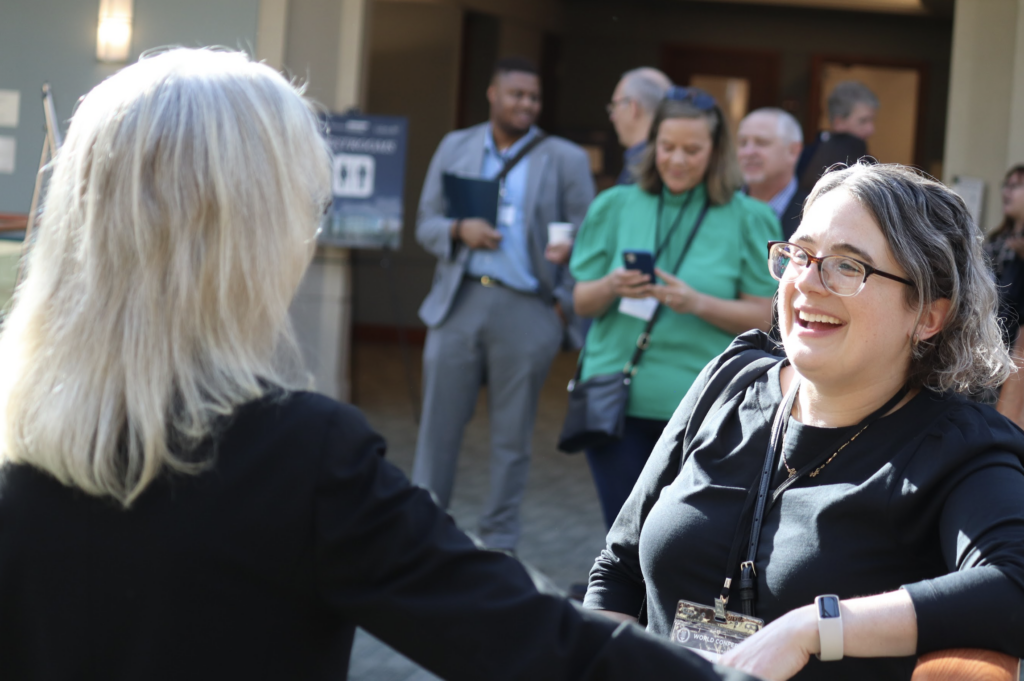

And of course as the old saying goes that while it’s not okay to drink while you’re writing, it’s sometimes fun to write while you’re drinking.

What kind of community is this? I’ll close with a story—and one more photograph—from the conference cocktail party. I met a young first-year Georgetown grad student, in international relations. On his way back from a class in which he had just written a hypothetical speech for an imaginary Southeast Asian leader on the dangers of nuclear arms, he had stumbled into our gathering and asked someone who we were. He told the speechwriter he was interested in speechwriting, and the speechwriter brought the young man to me. When I heard his story, I led him over to the aforementioned award-winning NATO Military Speechwriter Russell, without the faintest doubt that she would be happy to talk to him. “Really?!” he said. Within five minutes another speechwriter had filched a beer for him, and put it in his hand. He could not believe his good luck.
Neither, last week in Georgetown, as the professional rhetoricians of the world remembered we aren’t facing all this trouble alone but along with smart, humane, courageous and likeminded others, could any of us.



